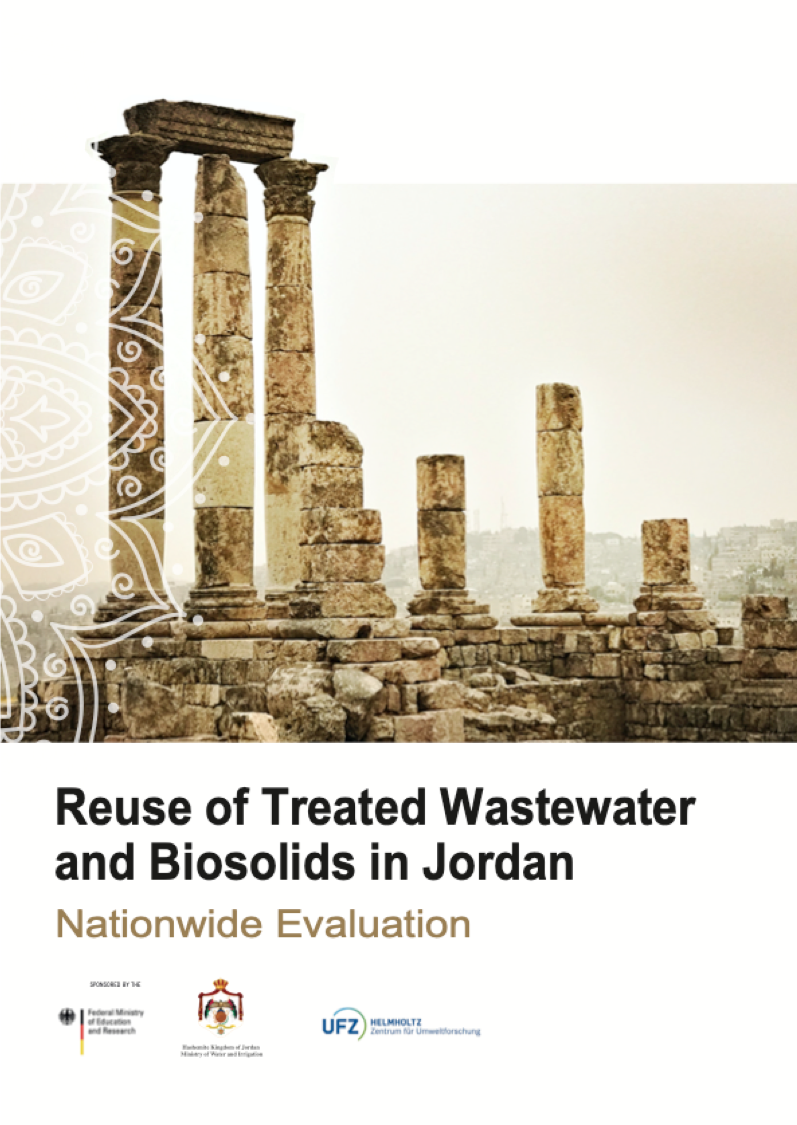Reuse of Treated Wastewater and Biosolids in Jordan | Nationwide Evaluation
Many countries in the Middle East and North Africa (MENA) face challenges related to scarce water resources, population growth, and climate change. For this reason, treated wastewater (TWW) or reclaimed water should be used in place of conventional water resources across diverse sectors. Jordan has recently introduced policies which clearly state that freshwater used for irrigation should be gradually substituted with TWW whenever feasible. Many factors - including regulatory, institutional, social, technical, and financial aspects – will ultimately affect the success of this substitution process.
Although the agricultural sector in Jordan has been using treated water for decades, the potential for a direct reuse, in particular, is far from being exhausted. Direct use of TWW is still not popular in the country and faces several challenges, namely: (1) institutional fragmentation, which jeopardizes the design and implementation of effective reuse schemes; (2) the existing technical standards, which are particularly relevant when small-scale treatment and reuse schemes are considered; (3) the lack of well-established business models, which hinders the widespread use of decentralized wastewater treatment systems; and (4) the lack of social acceptance.

Public awareness programs have, up until now, ignored the issue of promoting TWW use. Hence, the government should invest in public awareness programs that focus on explaining wastewater treatment and reuse. Other areas for missing investment include: (i) reducing TWW losses through infiltration and evapotranspiration (e.g. King Abdullah Canal) and enhancing TWW transportation and storage; (ii) establishing an independent unit to monitor the decentralized and semi-centralized wastewater treatment plants and create an official database of these facilities; (iii) passing new official guidelines concerning registration, notification, supervision and performance evaluation, as well as developing a mechanism that can be used to monitor effluent quality and the end use of TWW; and (iv) enhancing the performance of certain centralized wastewater treatment plants (CWWTPs) to comply with the current Jordanian reuse standard (JS 893, 2006).
This study will give an overview on the actual amounts of TWW and existing reuse practices in Jordan. By using Geographical Information Systems 33 centralized wastewater treatment systems that serve communities bigger than 5000 PE have been mapped and the actual amount and quality of TWW (about 163 MCM in 2018) and its reuse is discussed, and the best practice examples for the reuse of TWW and biosolids in Jordan are presented.
Furthermore, 85 treatment systems serving communities, hotels, individual houses smaller than 5000 PE have been identified.
These study results should serve as the basis for the establishment of a national inventory, in particular, for decentralized wastewater treatment and reuse systems, which facilitates the coordination of permit procedures and control measures in Jordan.
Furthermore, there are two main critical policy measures which are discussed that can improve the current situation and be used to overcome the previously described challenges. The first policy measure is related to the development and approval of an institutional framework for Sanitation Safety Planning (SSP) and the subsequent development and employment of SSPs for different catchment areas in accordance with the IWRM principles presented in the National Water Strategy 2016 – 2025. Sanitation Safety Plans would consider all agricultural inputs to prioritize hazards and define control measures that would minimize the identified risks. This approach would facilitate the implementation of new standards that would define the budget for wastewater treatment and TWW reuse technologies. This is important as investments in wastewater treatment have previously proven futile due to contamination later in the process. Moreover, SSPs would coordinate actions related to wastewater management which will reduce the existing burden on the Water Authority of Jordan (WAJ) and result in clearly defined responsibilities and interfaces among the specified controlling bodies and stakeholders. The second policy measure focuses on introducing a more integrated wastewater management approach that is based on the concept of a circular economy, i.e. the value creation process includes various waste streams. This approach would ideally result in cost recovery and improved societal acceptance of wastewater treatment plants (WWTP) facilities in local communities. Resource recovery facilities or green facilities – could then be established to encourage investments.
Such recommendations for more efficient water management would assist Jordan in achieving one of the goals for sustainable development listed by the United Nations, ‘Ensure access to water and sanitation for all’ (Goal 6).
The study can be downloaded from the follwoing link:
Reuse of Treated Wastewater and Biosolids in Jordan | Nationwide Evaluation (22 MB)

